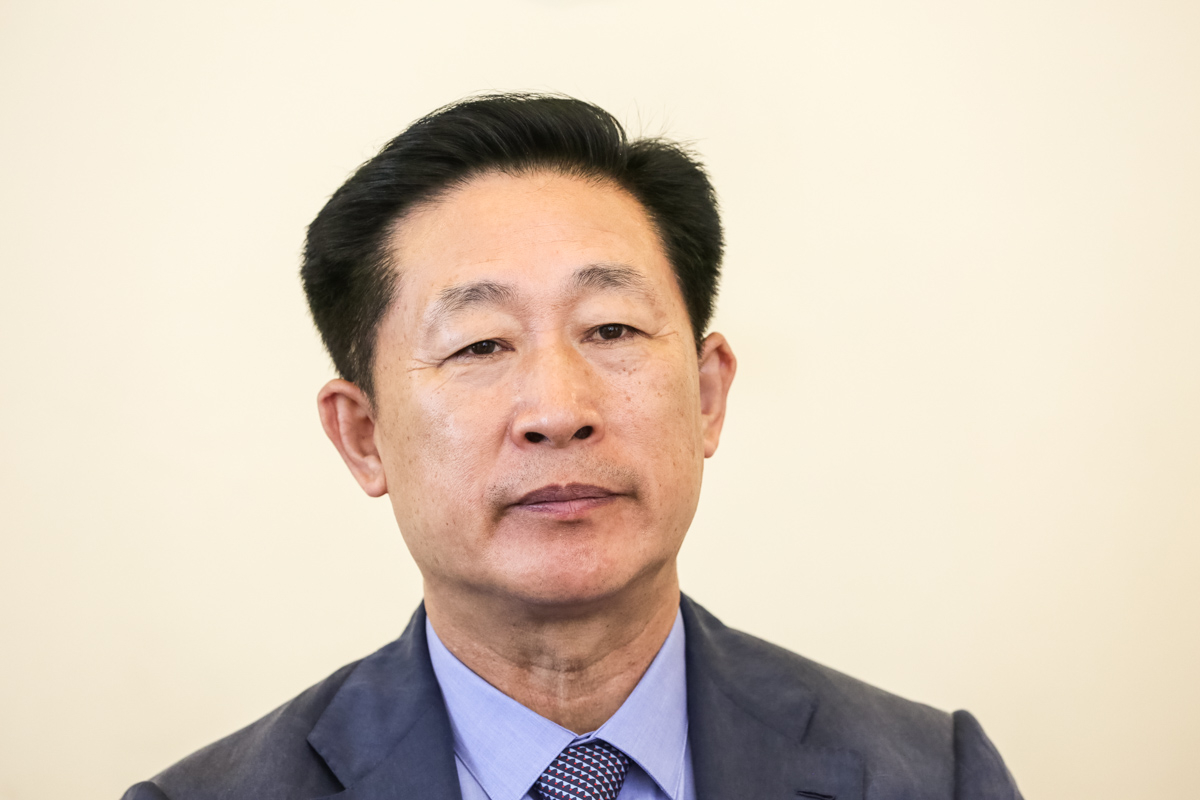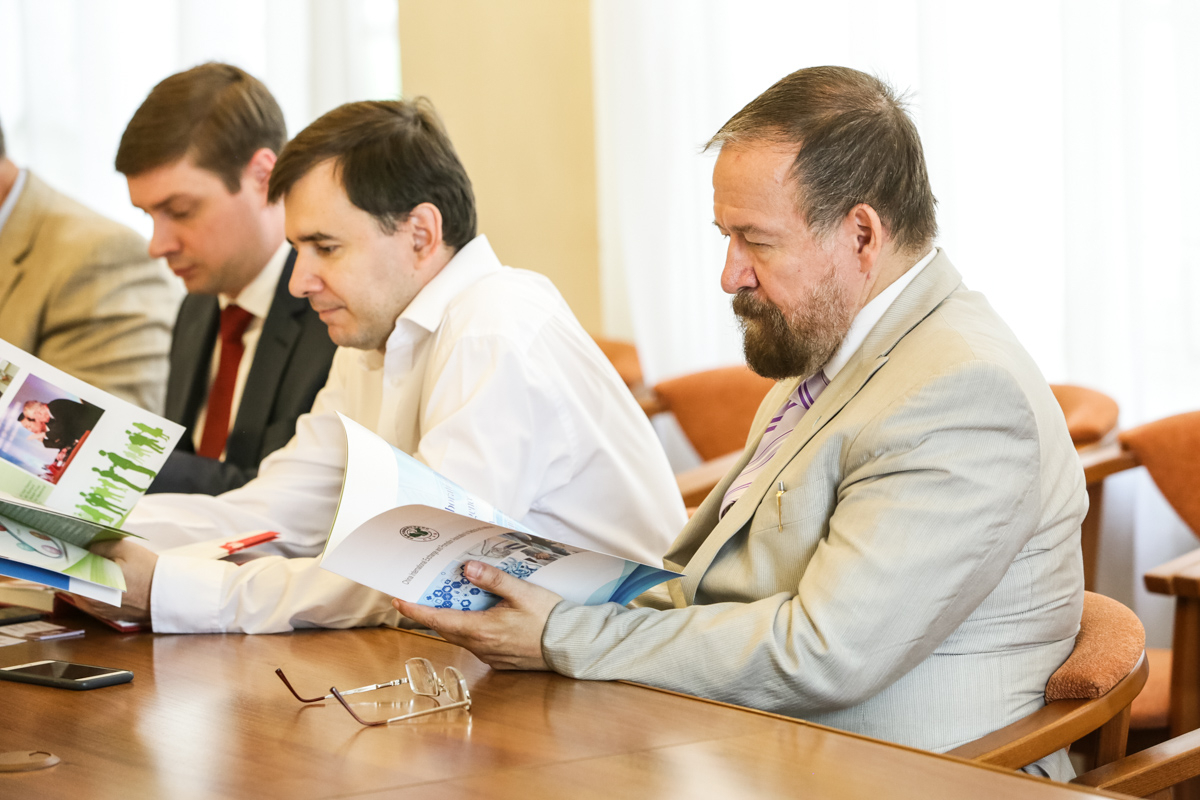China-SPbU collaboration in medicine
The delegation of scientists in medicine from Capital Medical University and Harbin Medical University has visited SPbU.
They discussed the opportunities for scientific collaboration in various fields of medicine: from otorhinolaryngology and ophthalmology to healthcare management.
The delegation met Deputy Rector for Research Sergei Andrushin. “The last eight years have seen advances in the University. The University opened the Research Park which gas no equals in Russia. We have managed to boos research infrastructure and attract the world’s leading scientists to lead our laboratories. All these can benefit medicine as well”, — said Sergei Andrushin.
The University is interested in using its potential and applying interdisciplinary approach.
The head of the Chinese delegation, Chairperson of the Committee for Healthcare Development in China, academician of the Chinese Academy of Engineering Han Demin, who is also Chairperson of the World Council for Otorhinolaryngology and Head and Neck Operative Surgery and Head of the Department of Hearing Prevention of the WHO, identified the main areas for collaboration.
Areas for collaboration
We are primarily interested in scientific collaboration: joint conferences, academic exchange between students and professors. Among the areas that are of high priority are telemedicine, big data and artificial intelligence. Besides, advances in healthcare management is vital for us.
During the meeting, they have also discussed the project “Hua Tuo”, a comprehensive project to provide financial support from the government in healthcare. In this respect, Sergei Andrushin told about a SPbU’s educational programme “Healthcare Management” which is one of the most popular programmes in SPbU and prepares those who will improve healthcare management.
The parties agreed that collaboration was vital not only in medicine, but in other areas as well: IT, biology, genetics, and even history. “Professor Han told us today that he also focused on increasing healthcare services in rural areas. In this respect, we can think of SPbU researchers’ work on rural medicine in late XIX – early XX centuries. The order of the Russian Emperor Nikolay II told tells about a reform in healthcare on rural areas, beyond the capital. The reform brought positive changes in healthcare by proving highly qualified specialists in the rural areas”, — said SPbU’s Associate Professor, Candidate of Medical Sciences Leonid Churilov.
The parties have agreed to prepare a draft for collaboration agreement for grants, conferences and academic exchange.




